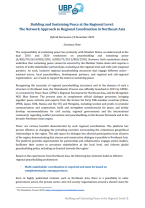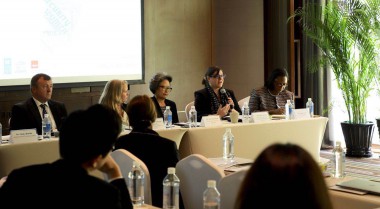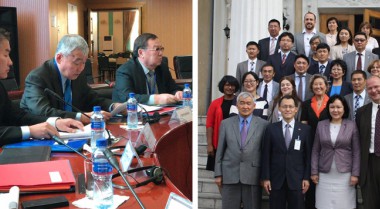Building and Sustaining Peace at the Regional Level: The Network Approach to Regional Coordination in Northeast Asia
On December 8 2022, in partnership with the Permanent Mission of Mongolia to the United Nations, we organised a roundtable discussion titled Building and Sustaining Peace at the Regional Level: The Network Approach to Regional Coordination in Northeast Asia during an advocacy visit of Ulaanbaatar Process participants to New York City.
This discussion was an informal dialogue to share the learning from the Ulaanbaatar Process with global peacebuilding policy experts within the United Nations, Member States and regional organisations. The conversation outlined critical avenues to support regional peacebuilding coordination in policy and shared practical experiences for practical action. The discussion also outlined persistent challenges of regional peacebuilding coordination and discussed recommendations to develop solutions to strengthen peacebuilding work in Northeast Asia.
Based on the experiences from Northeast Asia, three key elements build an effective regional peacebuilding architecture:
- Multi-stakeholder coordination is required and must be based on complementarity among partners.
- The network approach to peacebuilding must be at the core of regional coordination.
- Inclusivity is key for effective regional peacebuilding networks.
The following recommendations thus have been identified for the strengthening of the regional peacebuilding mechanism:
- The UN should take a more active convening role to bring together regional actors, the UN, national governments, and civil society, among others, to coordinate actions better and ensure a stronger impact of peacebuilding activities.
- Improved funding mechanisms are needed to support the civil society organizations' network approach.
- The inclusion of women and youth is key in regional peacebuilding networks and should be supported.


